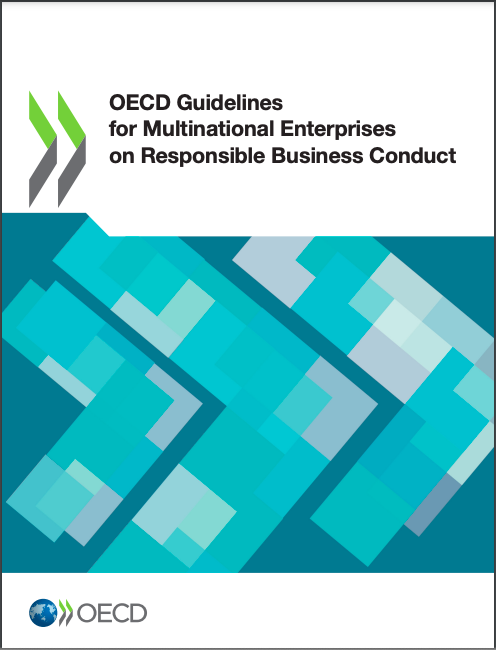The OECD Guidelines for Multinational Enterprises on Responsible Business Conduct (OECD Guidelines) are recommendations from governments to multinational enterprises on how to do business sustainably and responsibly.

The OECD Guidelines set standards for responsible business conduct across a range of issues such as human rights, labour rights, and the environment. The OECD Guidelines also establish an international system of government-backed grievance mechanisms to help resolve disputes between companies covered by the OECD Guidelines and individuals or groups harmed by irresponsible business conduct.
What makes the OECD Guidelines impactful:
- International and extraterritorial scope;
- Recognition of responsibility for harm across the whole value chain;
- Broad coverage of issues, business sectors, and business models and sizes;
- Government backing; and
- State-based grievance mechanisms for resolving conflicts regarding alleged corporate misconduct.
The OECD Guidelines are not legally binding on companies, but they are binding on signatory governments, which are required to ensure the Guidelines are implemented and observed. The text is available here in English, French and (soon) other languages.
- About the standards
The OECD Guidelines are structured in two parts.
Part I defines standards for responsible business conduct in areas such as labour rights, human rights, environment, information disclosure, science and technology, combating bribery, consumer interests, competition, taxation, and intellectual property rights. In June 2023, OECD members and adhering governments updated the Guidelines, introducing substantial new provisions on topics ranging from climate change, to due diligence, to technology, to protection of civic space.
Part II sets out Procedures to guide governments in implementing the recommendations in Part I.
- About the NCP grievance mechanism In addition to setting standards on corporate conduct, the OECD Guidelines also establish a system of government-backed grievance mechanisms in the form of National Contact Points (NCPs). Every government that adheres to the Guidelines is required to establish an NCP to promote the OECD Guidelines and handle complaints against companies that have allegedly failed to observe the Guidelines’ standards. Complaints are usually handled through mediation or other conciliatory practices that try to help parties reach mutual agreement to remedy past harm and improve practices in future.

